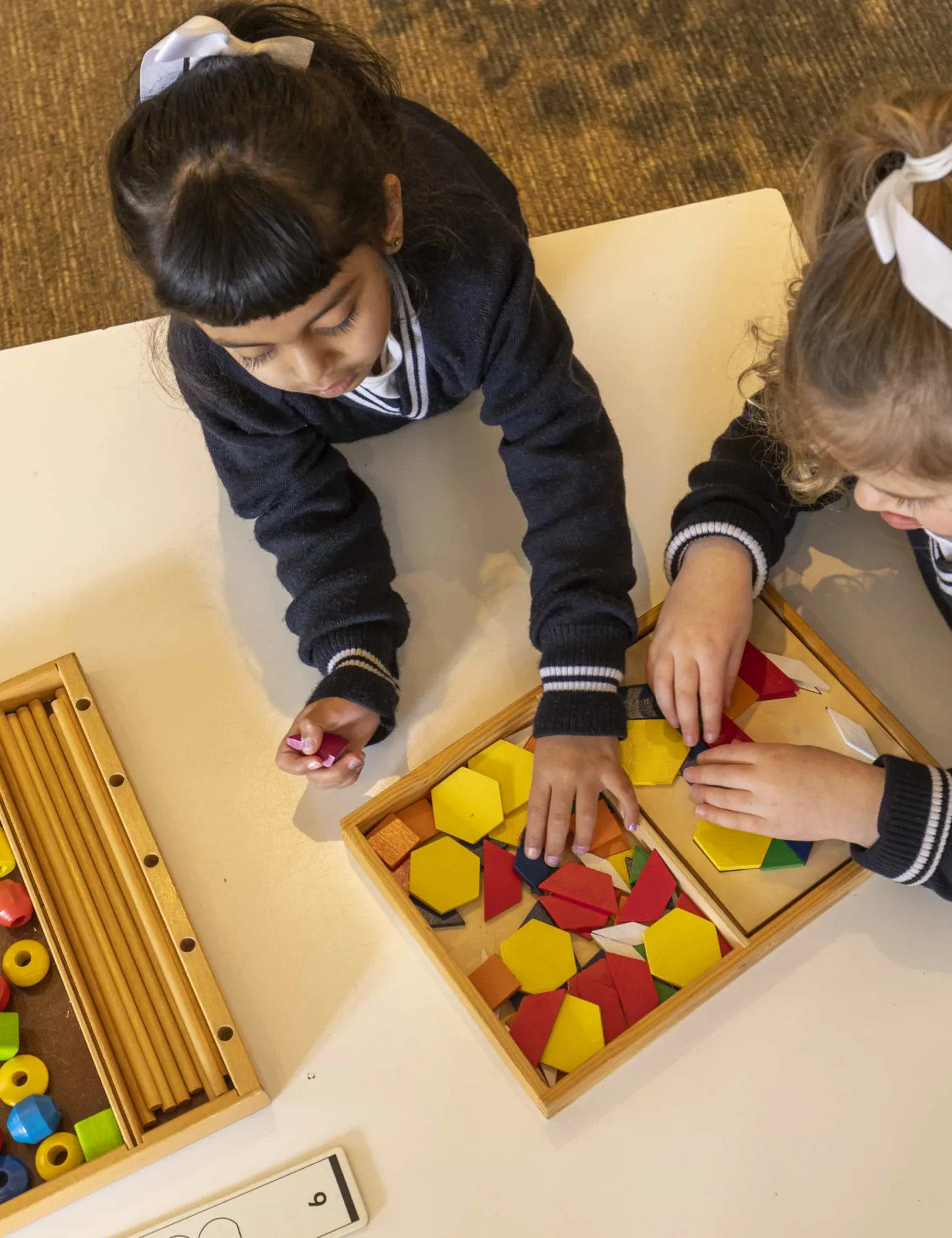



Subtracting the Barriers
Mathematics is a most important academic discipline in so many ways, and sometimes it can cause feelings of angst in a minority of students, but Melbourne Girls Grammar’s educators work hard to create a culture that breaks down barriers and make mathematics more accessible and easier to learn for all Grammarians.
Head of Mathematics, Robin Dunn and his department continuously nurture a culture that encourages curiosity, enthusiasm and passion whilst crushing stigmas associated with ‘difficult’ subjects and creating a mindset of learning. Robin credits passionate, experienced and specialist teachers, who work well in a team and are extremely professional, for helping drive this culture.
Robin gives his team at Merton Hall the freedom and opportunities to develop and further their careers by teaching more challenging classes, ensuring the culture of learning is not limited to just the students. This helps build the experience of the Mathematics Department, which in turn benefits our older Grammarians. His team also does not teach any other subjects, which directs the teachers’ focus on ensuring the more complex topics are better understood. Their dedication extends beyond the classroom, with help sessions and constant contact with students aiding Grammarians of all competency levels.

This starts early at Melbourne Girls Grammar with students from as young as three embarking on the foundations of Mathematics – numeracy, shapes and spaces, data, measurement and patterning. From Morris Hall up to Year 8 our budding students of Mathematics are engaged in Number and Algebra, Measurement and Geometry, and Statistics and Probability, which increases in difficulty as they progress. Problem solving is also a major part of maths throughout these year levels. Number fluency and hands-on learning materials help our Morris Hall Grammarians prepare for maths at Merton Hall. At Year 9 and 10 Grammarians are preparing for VCE and are tackling the same strands at a deeper level, via three pathways: some take General Mathematics while others take Mathematics (the mainstream course) and others the accelerated pathway (doing Year 9 and 10 Mathematics in one year) to fast-track into Year 11 and 12 VCE subjects. Grammarians who select Mathematics in VCE can do Further Mathematics, Mathematical Methods and/or Specialist. The notion that Mathematics is harder for girls is a mindset, that if dispelled early can provide the belief that if a student were to persevere even when the going gets tough, they can succeed. Just like with learning to throw, catch and run, what you learn and master with confidence at a young age lays the foundations for future growth and development and the attainment of skills needed later in life.
Across the School, our teachers’ passion for mathematics stimulates curiosity. Robin believes that when a teacher is passionate and curious about what they teach, it becomes contagious for the students. He says students are more likely to say they love learning mathematics because of the passion of their teacher. This is on display in the team that comprises the Mathematics Department where a sense of collegiality, expertise and willingness to help each other are critical. “Great educators allow students to enter their classes with a sense of safety, an open mind, and a willingness to learn.” he says. “The collegiality within the department means they all understand the culture they are passing on to the students”.
This starts early at Melbourne Girls Grammar with students from as young as three embarking on the foundations of Mathematics – numeracy, shapes and spaces, data, measurement and patterning. From Morris Hall up to Year 8 our budding students of Mathematics are engaged in Number and Algebra, Measurement and Geometry, and Statistics and Probability, which increases in difficulty as they progress. Problem solving is also a major part of maths throughout these year levels. Number fluency and hands-on learning materials help our Morris Hall Grammarians prepare for maths at Merton Hall. At Year 9 and 10 Grammarians are preparing for VCE and are tackling the same strands at a deeper level, via three pathways: some take General Mathematics while others take Mathematics (the mainstream course) and others the accelerated pathway (doing Year 9 and 10 Mathematics in one year) to fast-track into Year 11 and 12 VCE subjects. Grammarians who select Mathematics in VCE can do Further Mathematics, Mathematical Methods and/or Specialist. The notion that Mathematics is harder for girls is a mindset, that if dispelled early can provide the belief that if a student were to persevere even when the going gets tough, they can succeed. Just like with learning to throw, catch and run, what you learn and master with confidence at a young age lays the foundations for future growth and development and the attainment of skills needed later in life.
Across the School, our teachers’ passion for mathematics stimulates curiosity. Robin believes that when a teacher is passionate and curious about what they teach, it becomes contagious for the students. He says students are more likely to say they love learning mathematics because of the passion of their teacher. This is on display in the team that comprises the Mathematics Department where a sense of collegiality, expertise and willingness to help each other are critical. “Great educators allow students to enter their classes with a sense of safety, an open mind, and a willingness to learn.” he says. “The collegiality within the department means they all understand the culture they are passing on to the students”.
This starts early at Melbourne Girls Grammar with students from as young as three embarking on the foundations of Mathematics – numeracy, shapes and spaces, data, measurement and patterning. From Morris Hall up to Year 8 our budding students of Mathematics are engaged in Number and Algebra, Measurement and Geometry, and Statistics and Probability, which increases in difficulty as they progress. Problem solving is also a major part of maths throughout these year levels. Number fluency and hands-on learning materials help our Morris Hall Grammarians prepare for maths at Merton Hall. At Year 9 and 10 Grammarians are preparing for VCE and are tackling the same strands at a deeper level, via three pathways: some take General Mathematics while others take Mathematics (the mainstream course) and others the accelerated pathway (doing Year 9 and 10 Mathematics in one year) to fast-track into Year 11 and 12 VCE subjects. Grammarians who select Mathematics in VCE can do Further Mathematics, Mathematical Methods and/or Specialist. The notion that Mathematics is harder for girls is a mindset, that if dispelled early can provide the belief that if a student were to persevere even when the going gets tough, they can succeed. Just like with learning to throw, catch and run, what you learn and master with confidence at a young age lays the foundations for future growth and development and the attainment of skills needed later in life.
Across the School, our teachers’ passion for mathematics stimulates curiosity. Robin believes that when a teacher is passionate and curious about what they teach, it becomes contagious for the students. He says students are more likely to say they love learning mathematics because of the passion of their teacher. This is on display in the team that comprises the Mathematics Department where a sense of collegiality, expertise and willingness to help each other are critical. “Great educators allow students to enter their classes with a sense of safety, an open mind, and a willingness to learn.” he says. “The collegiality within the department means they all understand the culture they are passing on to the students”.


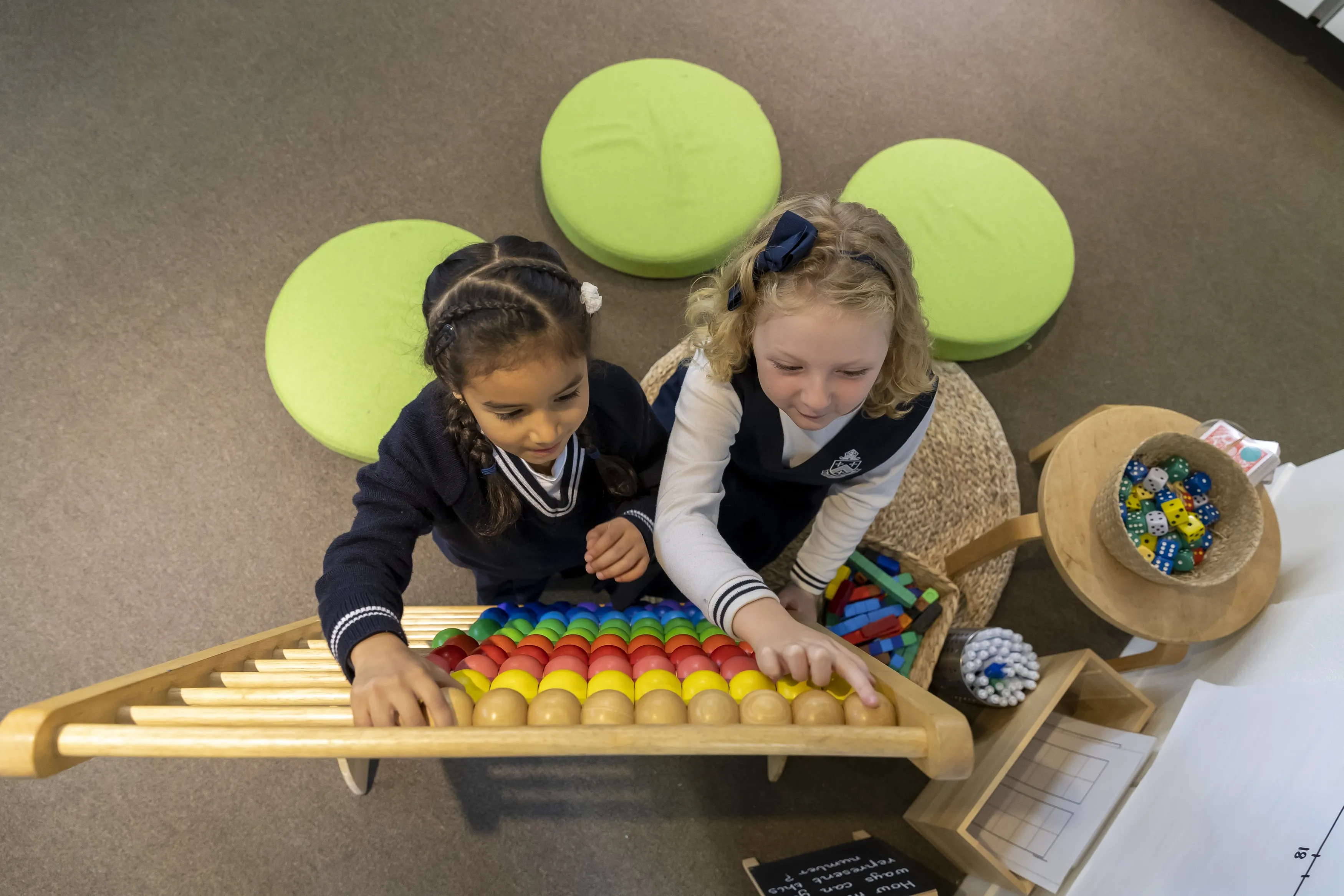

Tiffany Alfaro-Garcia and Katrijn Out count using an Abacus.



Tiffany Alfaro-Garcia and Katrijn Out count using an Abacus.
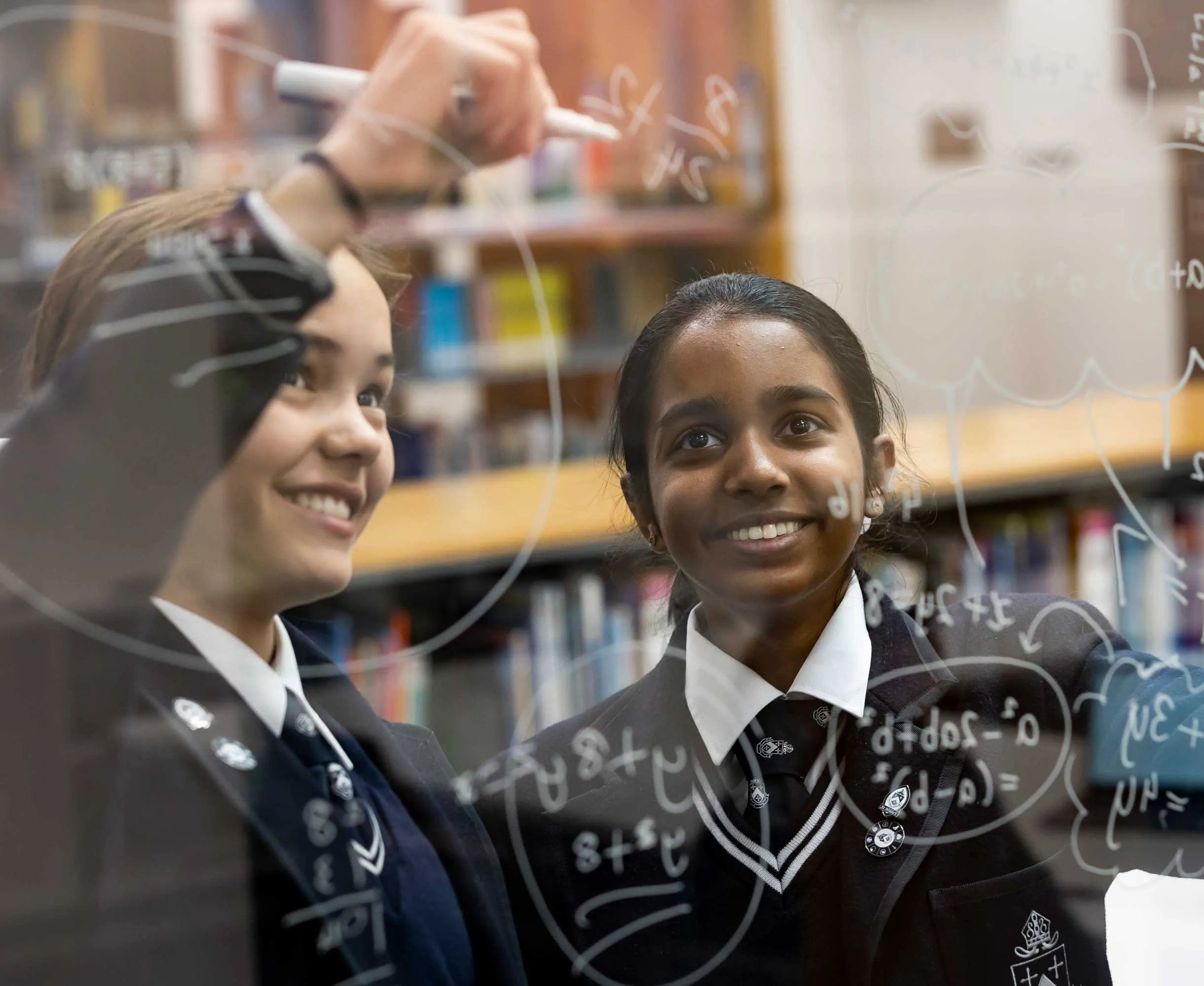

Middle Years students Chloe Anderson and Chanara Aberathna work on a problem.

Creating a safe and inclusive environment no matter the pathway is also important. Our Grammarians are encouraged to ask any questions and their teachers often include the whole class, or group to discover the answer. Robin says this often opens new points of discussion amongst students and opens their minds further no matter their age. Importantly, this also gives value to questions in class and encourages the more reticent to engage.
Celebrating these moments and other achievements gives students a taste of success, which is another factor that becomes contagious within classes. Robin says something as little as a teacher saying “good on you” can go a long way to giving confidence to students who may be reticent in maths. He adds, “If you just break down a few of those barriers early, it's amazing what they can do”.
At Melbourne Girls Grammar, our teachers aren’t necessarily setting students up for studying Mathematics at university but importantly for them to perform at their best whatever the level of mathematics, opening more doors to further study. Robin says a lot of students, once they open their minds, surprise themselves with how good they are at Maths. “If you give them the environment where there's plenty of resources, plenty of work to do, plenty of help with what they do, approachable educators, and the willingness for any staff member to help anyone at anytime, they'll embrace it.”
Creating a safe and inclusive environment no matter the pathway is also important. Our Grammarians are encouraged to ask any questions and their teachers often include the whole class, or group to discover the answer. Robin says this often opens new points of discussion amongst students and opens their minds further no matter their age. Importantly, this also gives value to questions in class and encourages the more reticent to engage.
Celebrating these moments and other achievements gives students a taste of success, which is another factor that becomes contagious within classes. Robin says something as little as a teacher saying “good on you” can go a long way to giving confidence to students who may be reticent in maths. He adds, “If you just break down a few of those barriers early, it's amazing what they can do”.
At Melbourne Girls Grammar, our teachers aren’t necessarily setting students up for studying Mathematics at university but importantly for them to perform at their best whatever the level of mathematics, opening more doors to further study. Robin says a lot of students, once they open their minds, surprise themselves with how good they are at Maths. “If you give them the environment where there's plenty of resources, plenty of work to do, plenty of help with what they do, approachable educators, and the willingness for any staff member to help anyone at anytime, they'll embrace it.”
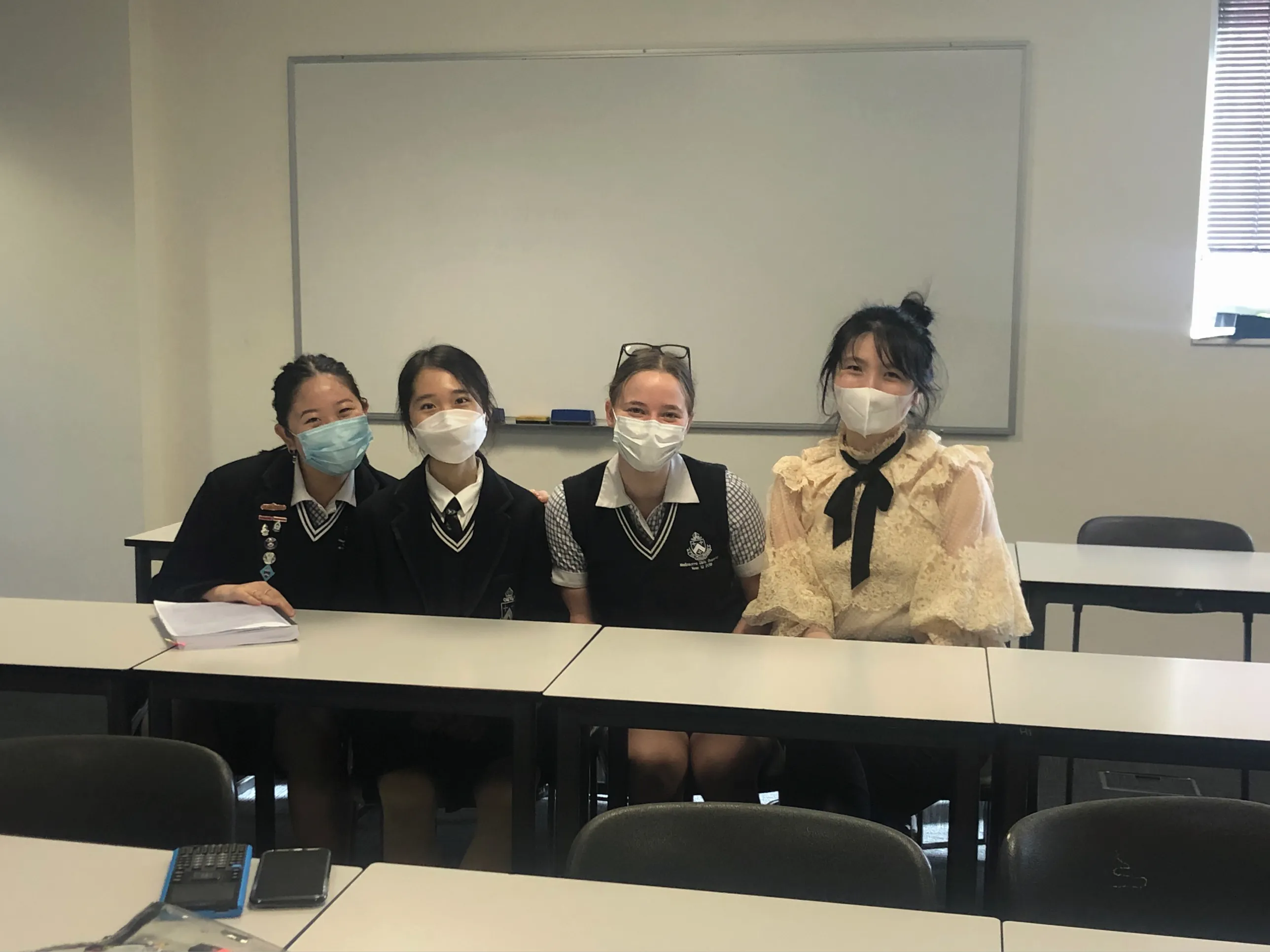

Four Grammarians completed the University of Melbourne Mathematics Extension Program this year.



Four Grammarians completed the University of Melbourne Mathematics Extension Program this year.


Four Grammarians completed the University of Melbourne Mathematics Extension Program this year.


At the top end of the School, Robin is trying to foster this type of environment to get higher numbers of our Grammarians enrolling in Mathematical Methods and Specialist Mathematics He says opportunities are increased dramatically when students take on ‘Methods’ and he often tells them that ‘Specialist Maths’ is not as scary as it sounds. He is hoping to break down stereotypes around the ‘tougher’ maths units. Specialist should be called “other” maths, as it is not necessarily harder that Methods, just different topics.
“The number of students doing Specialist Maths is on a growth trajectory and in two years' time they will have increased significantly.” Celebrating achievements outside the classroom also plays a big part as it provides concrete role models and markers of what is possible. An example of this is Year 7 student Willa Ran, who was the School’s top performer at two recent mathematics competitions. She was invited into Principal, Dr Meath’s office to celebrate her Prize in the Australian Mathematics Competition and her Distinction in the Australian Intermediate Mathematics Olympiad. Senior Years students Sienna Stockdale, Angel He, Yang Yu and Joy Xu have just completed the University of Melbourne Mathematics Extension Program (UMEP), which provides credits against first year courses at the University and have been publicly acknowledged in School publications, and in assemblies. Robin says the Mathematics Department celebrates student achievements as much as possible; students involved in maths competitions are usually presented their awards at assemblies so they can be celebrated and share their success in the company of their peers.
The culture of mathematics is part of the future success of our Grammarians – both at school and beyond – by having the capacity to transport them into many amazing careers. Being a capable student of Mathematics is all in the mind; fostering a belief that you can be good and succeed at maths is about changing how it is perceived. Robin wants to encourage a culture where students know that, “just like it's ok to be good at sport, well, it's also ok to be good at Maths”
At the top end of the School, Robin is trying to foster this type of environment to get higher numbers of our Grammarians enrolling in Mathematical Methods and Specialist Mathematics He says opportunities are increased dramatically when students take on ‘Methods’ and he often tells them that ‘Specialist Maths’ is not as scary as it sounds. He is hoping to break down stereotypes around the ‘tougher’ maths units. Specialist should be called “other” maths, as it is not necessarily harder that Methods, just different topics.
“The number of students doing Specialist Maths is on a growth trajectory and in two years' time they will have increased significantly.” Celebrating achievements outside the classroom also plays a big part as it provides concrete role models and markers of what is possible. An example of this is Year 7 student Willa Ran, who was the School’s top performer at two recent mathematics competitions. She was invited into Principal, Dr Meath’s office to celebrate her Prize in the Australian Mathematics Competition and her Distinction in the Australian Intermediate Mathematics Olympiad. Senior Years students Sienna Stockdale, Angel He, Yang Yu and Joy Xu have just completed the University of Melbourne Mathematics Extension Program (UMEP), which provides credits against first year courses at the University and have been publicly acknowledged in School publications, and in assemblies. Robin says the Mathematics Department celebrates student achievements as much as possible; students involved in maths competitions are usually presented their awards at assemblies so they can be celebrated and share their success in the company of their peers.
The culture of mathematics is part of the future success of our Grammarians – both at school and beyond – by having the capacity to transport them into many amazing careers. Being a capable student of Mathematics is all in the mind; fostering a belief that you can be good and succeed at maths is about changing how it is perceived. Robin wants to encourage a culture where students know that, “just like it's ok to be good at sport, well, it's also ok to be good at Maths”
At the top end of the School, Robin is trying to foster this type of environment to get higher numbers of our Grammarians enrolling in Mathematical Methods and Specialist Mathematics He says opportunities are increased dramatically when students take on ‘Methods’ and he often tells them that ‘Specialist Maths’ is not as scary as it sounds. He is hoping to break down stereotypes around the ‘tougher’ maths units. Specialist should be called “other” maths, as it is not necessarily harder that Methods, just different topics.
“The number of students doing Specialist Maths is on a growth trajectory and in two years' time they will have increased significantly.” Celebrating achievements outside the classroom also plays a big part as it provides concrete role models and markers of what is possible. An example of this is Year 7 student Willa Ran, who was the School’s top performer at two recent mathematics competitions. She was invited into Principal, Dr Meath’s office to celebrate her Prize in the Australian Mathematics Competition and her Distinction in the Australian Intermediate Mathematics Olympiad. Senior Years students Sienna Stockdale, Angel He, Yang Yu and Joy Xu have just completed the University of Melbourne Mathematics Extension Program (UMEP), which provides credits against first year courses at the University and have been publicly acknowledged in School publications, and in assemblies. Robin says the Mathematics Department celebrates student achievements as much as possible; students involved in maths competitions are usually presented their awards at assemblies so they can be celebrated and share their success in the company of their peers.
The culture of mathematics is part of the future success of our Grammarians – both at school and beyond – by having the capacity to transport them into many amazing careers. Being a capable student of Mathematics is all in the mind; fostering a belief that you can be good and succeed at maths is about changing how it is perceived. Robin wants to encourage a culture where students know that, “just like it's ok to be good at sport, well, it's also ok to be good at Maths”








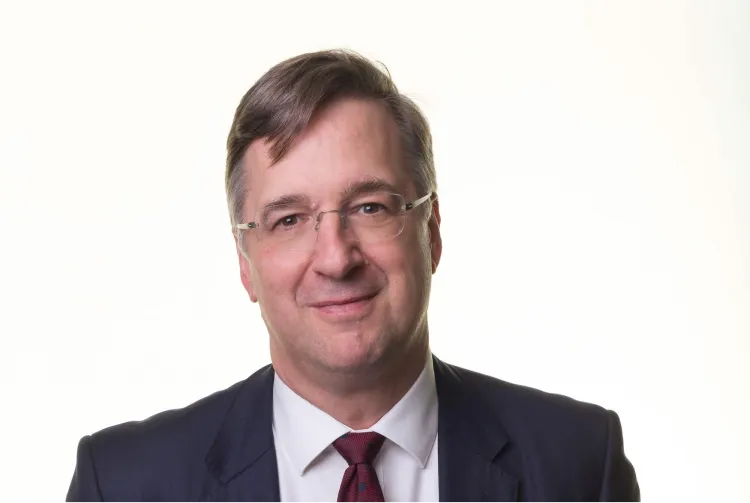
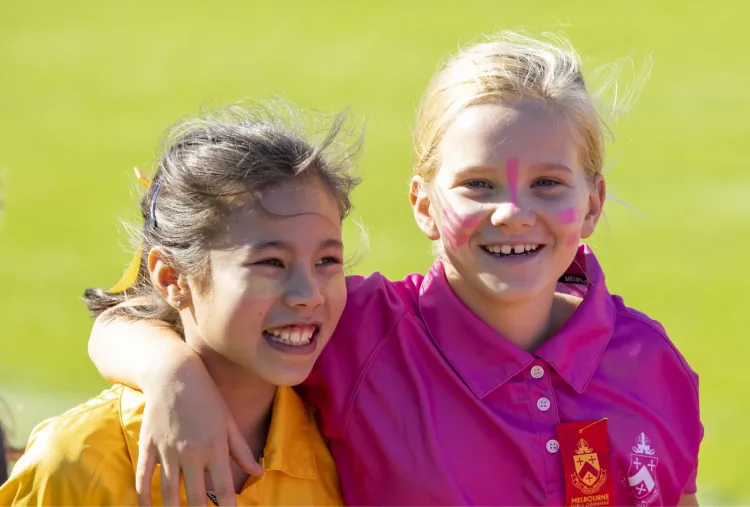
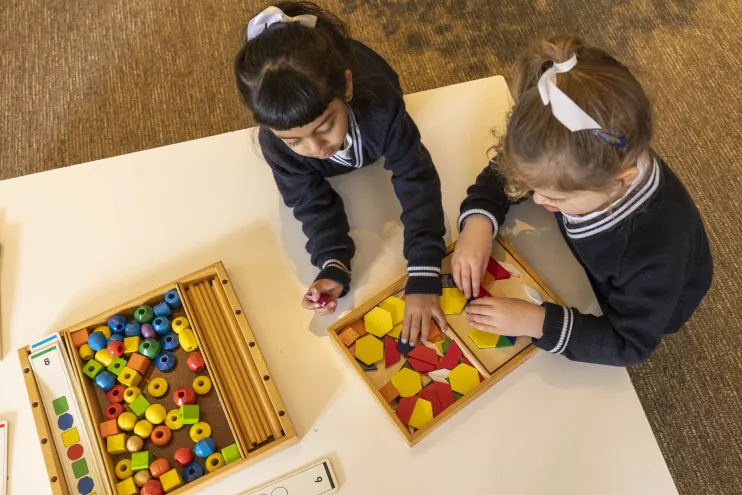
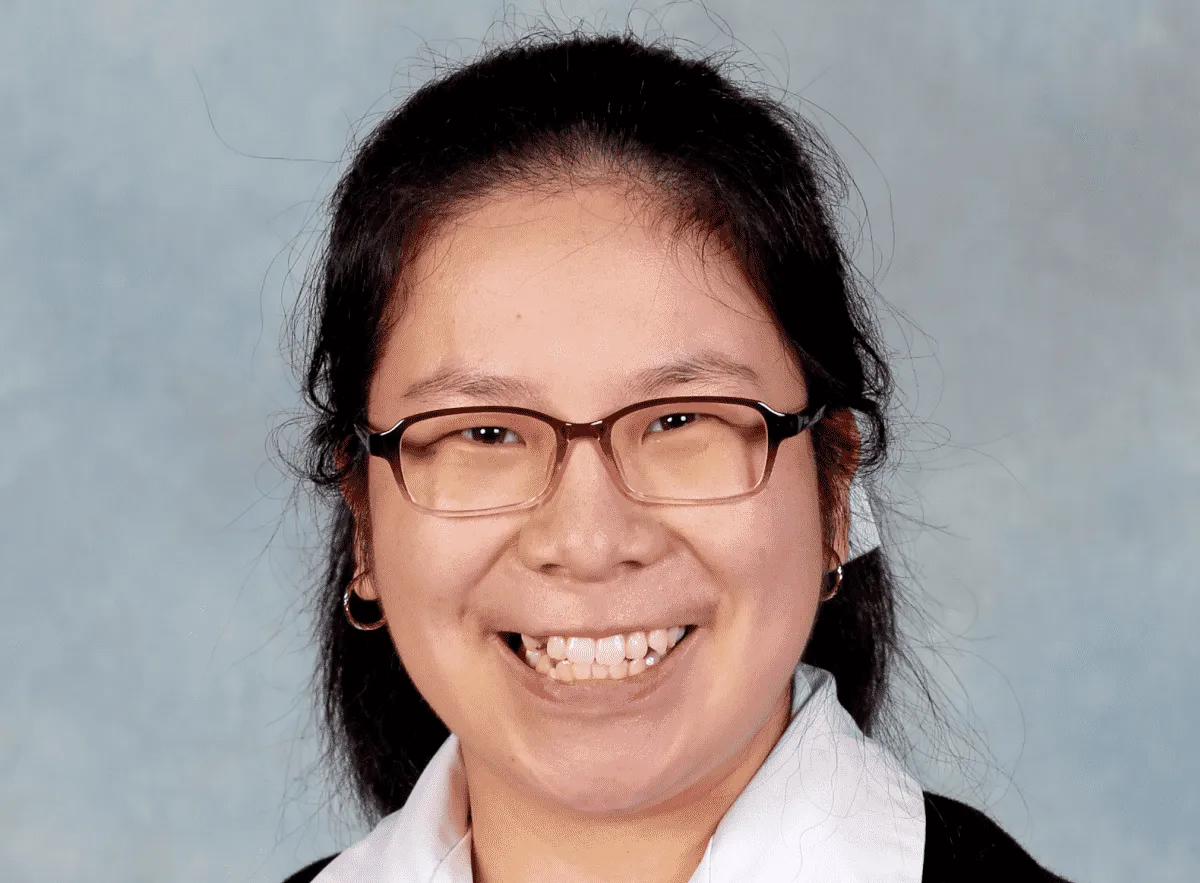
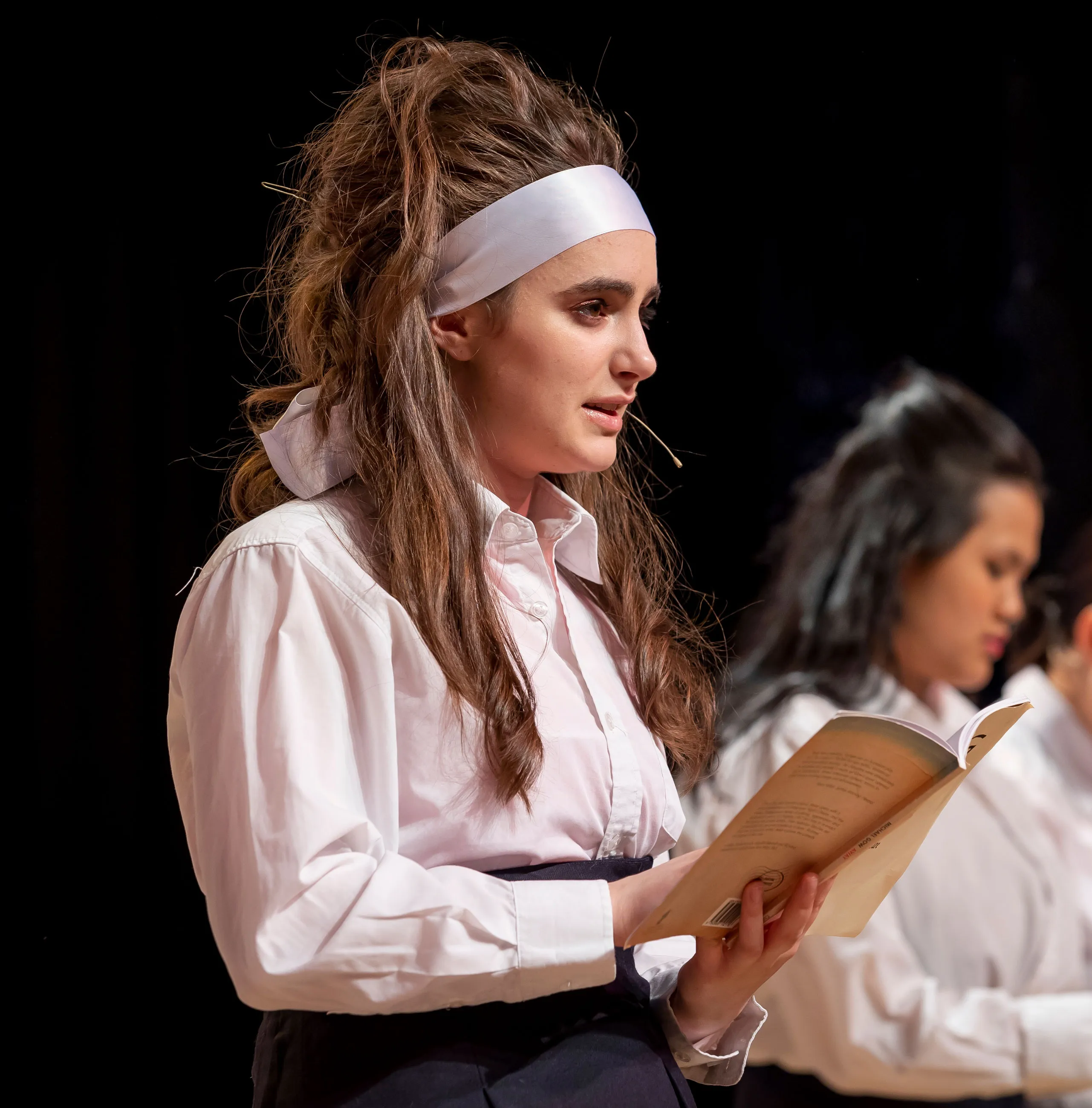

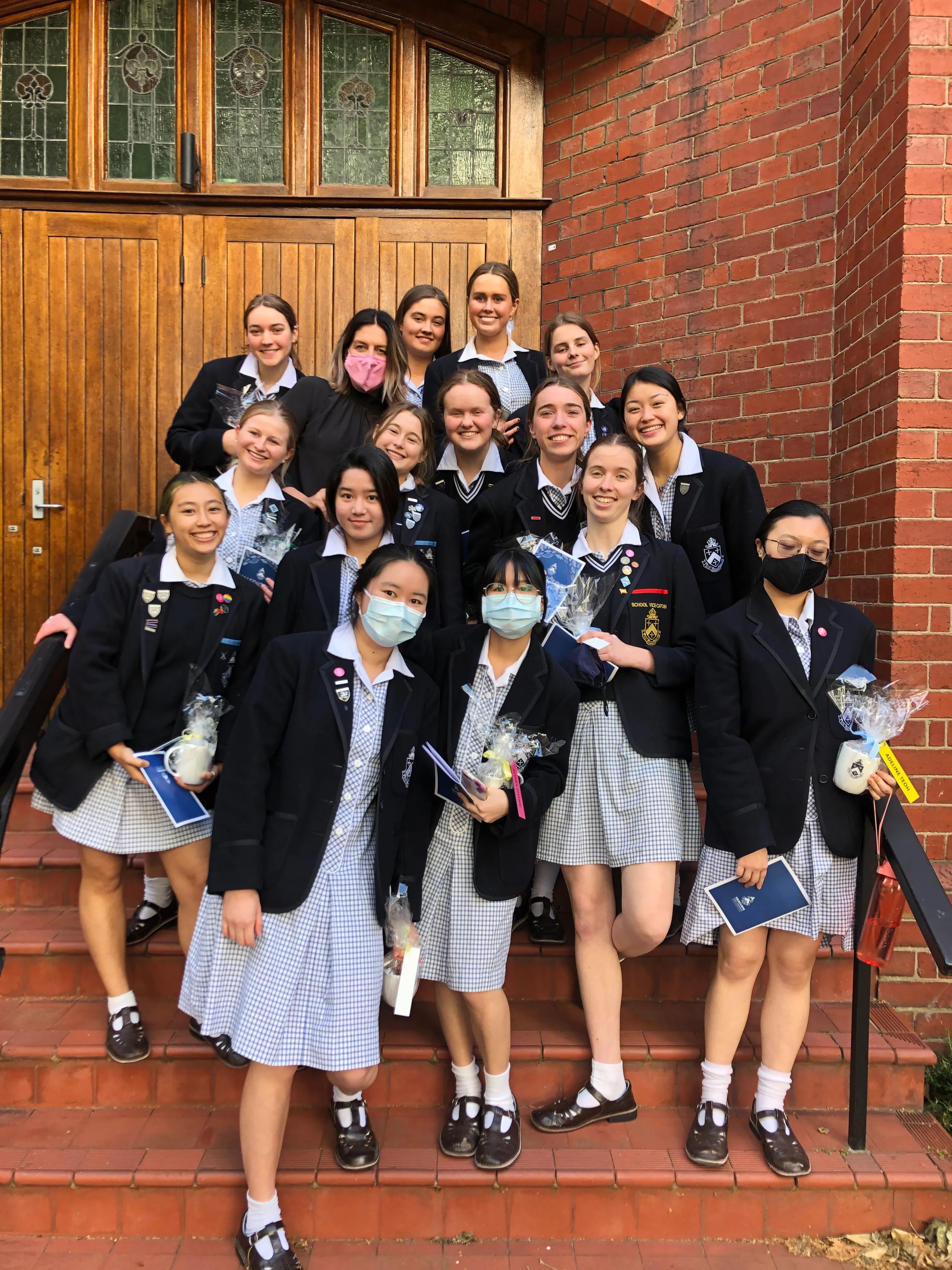

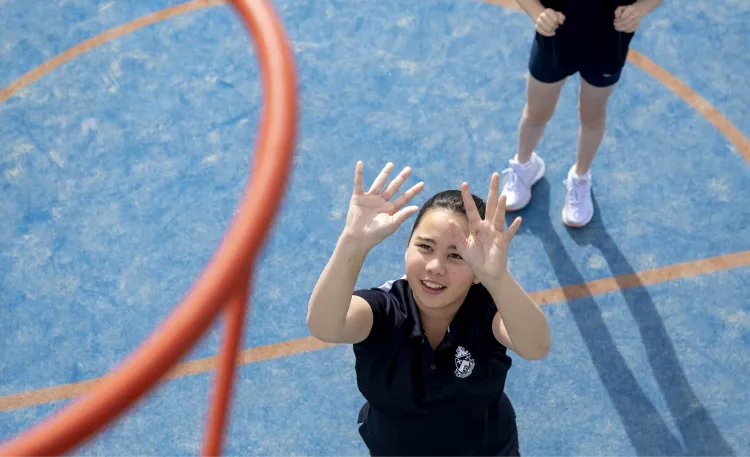
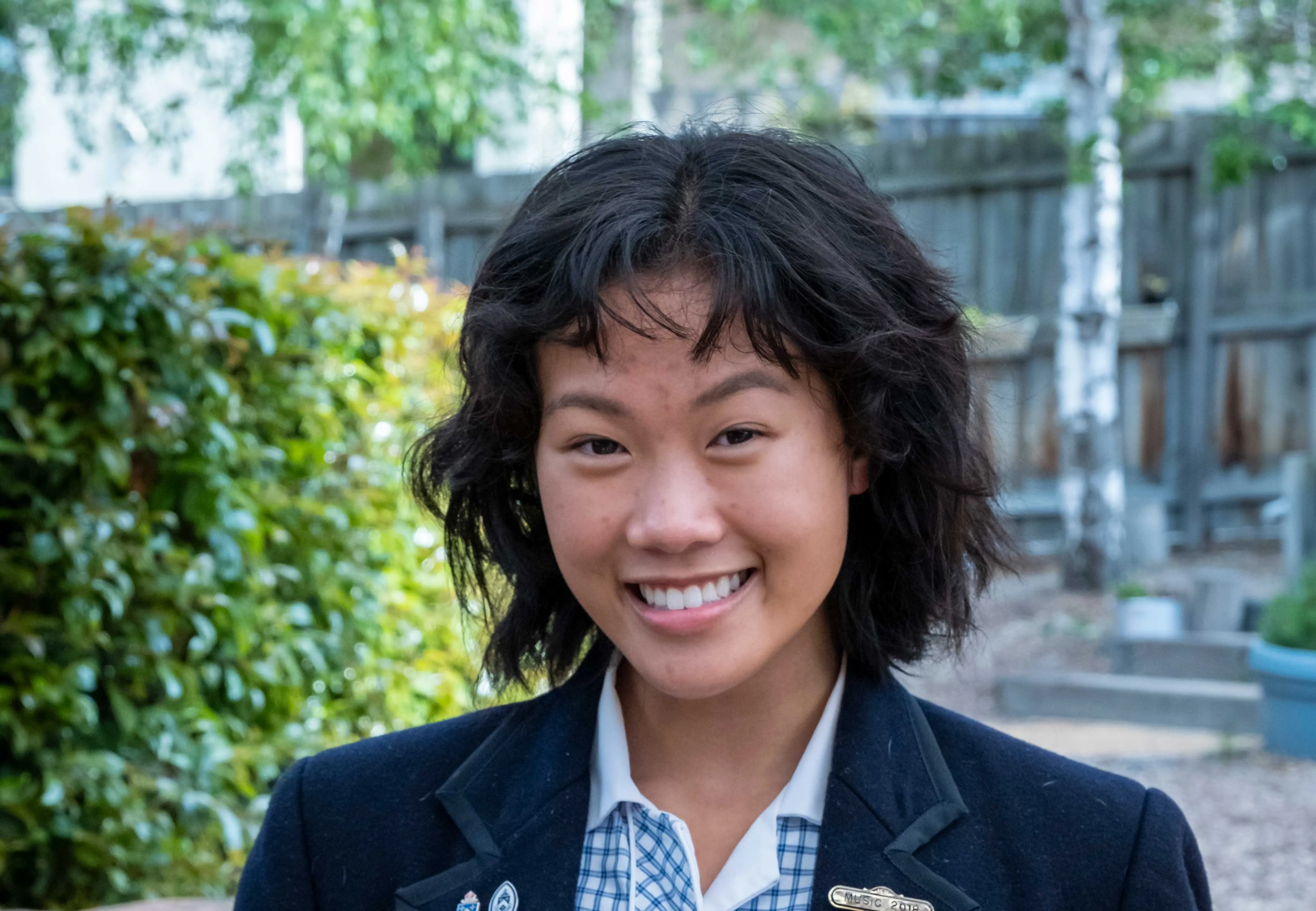
_crop.webp)


